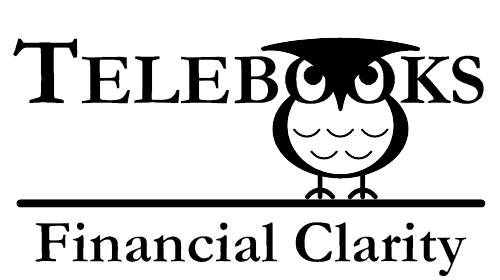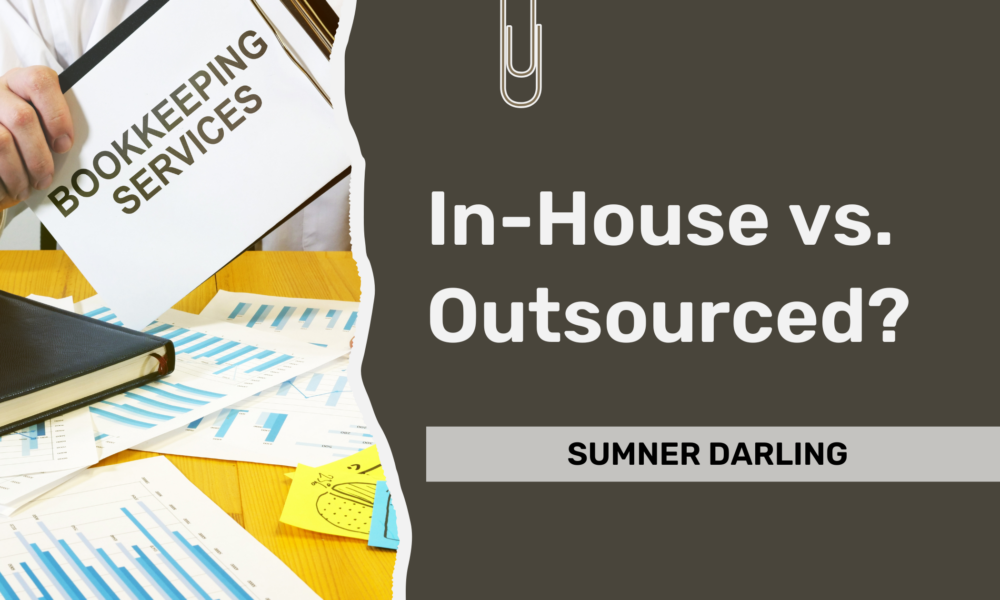Managing finances is a big deal for any architecture firm. So, have you ever wondered whether in-house vs. outsourced bookkeeping is the right choice? This decision isn’t just about dollars and cents—it’s about how you want to run your business and what will help you sleep better at night. Understanding the pros and cons of in-house vs. outsourced bookkeeping is crucial to making the right choice for your firm. Let’s break it down and explore both options, so you can make the best choice for your firm’s success.
Empowering Your Firm Through Smart Financial Choices
Your architecture firm’s financial health is the backbone of your operations. But is it just about tracking income and expenses? Absolutely not. It’s about making smart, informed decisions that align with your broader business goals. So, as you ponder in-house vs. outsourced bookkeeping, let’s dig into what each option really means for your firm’s future.
What Are My Firm’s Unique Bookkeeping Needs?
When it comes to bookkeeping, one size definitely doesn’t fit all. So, how do you know which option suits your firm best? It starts with understanding your specific needs and how each option in the in-house vs. outsourced bookkeeping debate can address them.

Needs Addressed by In-House Bookkeeping
In-House Bookkeeping is perfect for those who crave flexibility and control. Are you someone who likes to keep a close eye on the details? If so, having your finances managed internally might be the way to go. An owner, office manager, or even a part-time bookkeeper can handle the finances with the right tools and training. The best part? You’re in the driver’s seat, ensuring that everything aligns with your firm’s goals and operations. Plus, in-house bookkeeping often integrates seamlessly with your project management software, keeping everything under one roof. As your firm grows, in-house bookkeeping can grow with you. Just imagine how efficient you can be when you’re leveraging technology and fine-tuning internal workflows. With the right training, your team can handle increased volumes without breaking a sweat.
Needs Addressed by Outsourced Bookkeeping
But what if you’re thinking, “I’d rather focus on design and let someone else handle the numbers”? That’s where Outsourced Bookkeeping comes in. It offers a different set of perks, especially if you want to offload some responsibilities. Why spend time on bookkeeping when you could be designing the next great building? Outsourcing gives you access to professionals who specialize in accounting and bookkeeping. These experts stay up-to-date with the latest practices and regulations, so you don’t have to. What’s more, outsourcing is scalable—whether your firm is just starting out or rapidly expanding, outsourced services can easily adapt. And let’s not forget about cost-effectiveness; for many smaller firms, outsourcing is a great way to get advanced financial oversight without stretching internal resources too thin.
The Right Choice?
So, what’s the verdict? Both in-house and outsourced bookkeeping have their pros and cons. The right choice really comes down to your firm’s specific needs and goals. Let’s explore the strengths and potential pitfalls of each, so you can make a decision that sets your firm up for success.
The Pros and Cons of In-House Bookkeeping
So, what’s great about keeping bookkeeping in-house? And what might make you think twice? Let’s take a closer look:

Pros:
- Control and Oversight: Do you like to know exactly what’s going on with your finances at all times? In-house bookkeeping gives you that direct control, allowing you to make immediate adjustments whenever needed.
- Customization and Integration: Want your financial processes to align perfectly with your firm’s operations? In-house bookkeeping allows for customization, and it often integrates better with your project management tools.
- Scalability with Training: Planning to grow your firm? With the right training, in-house bookkeeping can scale right alongside your business. This means your processes can adapt as you expand, without losing control.
- Confidentiality: Worried about who sees your sensitive financial information? When you manage bookkeeping in-house, you control access to your data, ensuring that it stays confidential.
Cons:
- Higher Costs: Let’s face it, in-house bookkeeping isn’t cheap. You’ll need to cover salaries, benefits, and training costs, which can add up quickly.
- Resource Intensive: Do you have the time and resources to spare? Managing bookkeeping internally requires a significant commitment, and it could pull your focus away from your core business activities.
- Risk of Errors: What if your team isn’t up to date on the latest accounting practices? In-house bookkeeping, especially when handled by less experienced staff, can lead to errors and compliance issues.
- Dependency on Internal Knowledge: What happens if your go-to bookkeeper is out sick or leaves the firm? The effectiveness of in-house bookkeeping depends heavily on the knowledge and expertise of your team, which can be a risky dependency.
Common Pitfalls to Avoid:
- Underestimating Time Commitment: Have you thought about how much time in-house bookkeeping will really take? Without standard operating procedures, it’s easy to underestimate this and end up overwhelmed.
- Neglecting Training: Is your team fully trained? Without proper training, even the most dedicated staff might struggle with complex tasks, leading to costly mistakes.
- Lack of Backup: What’s your plan if your bookkeeper is suddenly unavailable? Relying on a single person without backup can disrupt your financial operations.
- Neglecting Process Optimization: Are you constantly improving your processes? If not, you might be missing out on efficiency gains or risking errors.
The Pros and Cons of Outsourced Bookkeeping
Thinking about outsourcing? It might just be the right move, but let’s weigh the benefits and drawbacks first:

Pros:
- Access to Expertise: Wouldn’t it be nice to have experts handle your finances? Outsourcing gives you access to professionals with up-to-date knowledge, ensuring accuracy and compliance.
- Scalability: Is your firm growing? Outsourced services can scale right along with you, adapting to your needs without requiring major internal changes.
- Efficiency and Focus: Want to focus on what you do best? Outsourcing frees up your time, so you can concentrate on design and client relationships while the experts handle the numbers.
- Cost-Effective: Looking to save some money? Outsourced bookkeeping can be more affordable, especially for smaller firms, as it reduces the need for internal staff resources and training.
Cons:
- Less Control: Are you okay with letting go of some control? Outsourcing means you’ll have to trust an external provider with your financial processes, which can be a bit nerve-wracking.
- Potential Integration Challenges: Will your systems play nicely together? Integrating outsourced bookkeeping with your project management tools might be trickier, depending on the provider’s systems.
- Data Security Concerns: How comfortable are you with sharing sensitive financial information? Outsourcing involves some level of risk, so it’s crucial to ensure your provider has strong security measures in place.
- Dependence on External Providers: What if your provider isn’t available when you need them? Your firm’s financial operations could be affected by the provider’s availability and reliability, so choose wisely.
Common Pitfalls to Avoid:
- Choosing the Cheapest Option: Is cheaper always better? Not necessarily. Going with the least expensive provider can lead to poor service quality, errors, and delays, which could end up costing you more in the long run.
- Inadequate Communication: Are you communicating enough? Without clear communication channels, you might face misunderstandings and slow response times, so set expectations upfront.
- Overlooking Data Security: How secure is your data? Sharing sensitive information with an external provider requires thorough vetting of their security protocols.
- Dependence on External Timelines: What happens if your provider has delays? Relying on external timelines means you’re dependent on their availability, which can disrupt your financial processes during critical periods.
Long-Term Financial Planning: How Your Choice Affects the Future
Your decision between in-house vs. outsourced bookkeeping doesn’t just affect today; it shapes your firm’s future. So, what should you consider?

- Scalability: Are you planning for growth? If so, consider how your bookkeeping choice will scale with you. Outsourced services offer flexibility, allowing you to adjust support as needed. In-house bookkeeping, however, requires investment in technology and SOPs to manage increased workloads. With technology streamlining processes and SOPs maintaining consistency, you can scale operations without sacrificing accuracy.
- Technology Integration: How important is integration for you? In-house bookkeeping offers a distinct advantage when it comes to integrating accounting software with project management tools. Since your team controls both systems, you can customize integrations to fit your firm’s specific needs, ensuring seamless data flow and real-time updates. This level of customization is harder to achieve with outsourced services, where integration might be limited by the provider’s systems.
- Sustainability: Will your choice stand the test of time? The sustainability of your firm’s financial practices depends on consistent and accurate bookkeeping. Whether you keep it in-house or outsource, your decision will impact how adaptable your financial management is to changes. In-house bookkeeping, when managed well, provides greater control and long-term reliability. It allows you to adapt your practices as your firm grows. Meanwhile, outsourced bookkeeping offers consistent support but may limit your flexibility in adjusting processes. Ultimately, choosing the right option will determine how effectively your firm can maintain financial stability and grow over time.
Comparative Matrix
Need a quick comparison? Here’s a matrix to help you weigh the factors that matter most when choosing between in-house and outsourced bookkeeping:
| Criteria | In-House Bookkeeping | Outsourced Bookkeeping |
|---|---|---|
| Control and Oversight | Do you prefer hands-on control? In-house gives you direct oversight and instant adjustments. | Willing to relinquish some control? Outsourcing relies on the provider’s systems and processes. |
| Customization and Integration | Want tailored processes? In-house allows for customization and may integrate seamlessly with project management tools. | Concerned about integration? Outsourced solutions may have challenges, depending on the provider’s systems. |
| Cost | Are you prepared for higher costs? In-house requires salaries, benefits, and training but offers tailored processes. | Looking to save? Outsourced services can be more cost-effective, especially for small firms, reducing the need for internal resources. |
| Expertise | Relying on internal knowledge? In-house depends on your team’s training and experience, which can scale with proper investment. | Need specialized knowledge? Outsourcing gives you access to professionals with up-to-date expertise. |
| Scalability | Planning to grow? In-house bookkeeping can scale with investment in technology and training, maintaining control as your firm grows. | Prefer flexibility? Outsourced services scale easily with business growth without requiring internal adjustments. |
| Data Security | Concerned about confidentiality? In-house gives you control over sensitive information, ensuring secure access. | Worried about data sharing? Outsourcing requires careful vetting to ensure the provider has strong security protocols. |
| Time and Resources | Have the resources? In-house requires periodic commitment of time and resources but offers a tailored approach. | Want to focus on design? Outsourcing frees up time for core business activities like design and client relationships. |
| Adaptability | Need adaptability? In-house processes can be adjusted as needed, offering high adaptability to changes in your business environment. | Need it to be flexible? Outsourced solutions may be less adaptable, depending on provider flexibility and contract terms. |
This matrix should help you weigh the factors that matter most to your firm and guide you toward making an informed decision.
Final Thoughts: Making an Empowered Choice
So, what’s your next move? Choosing between in-house vs. outsourced bookkeeping is a significant decision, but it’s more than just about cost or control. It’s about empowering your firm to take charge of its financial management. Whether you lean towards building in-house expertise or leveraging external services, the key is making an informed decision that aligns with your firm’s goals.
By carefully considering the pros and cons and reflecting on your firm’s unique situation, you’ll be well-equipped to choose the option that best supports your architecture firm’s financial health and overall success.
Ready to Take Control of Your Firm’s Financial Operations?
At Telebooks Network, we specialize in teaching small architecture firm owners and staff how to manage their financial operations in-house, including bookkeeping, payroll, and billing. If you’ve decided that in-house bookkeeping might be the right fit for your firm, or if you’re simply looking to refine your existing processes, we’re here to help.
Mastering these essential functions can give you greater control over your firm’s finances, improve cash flow, and empower you to make more informed business decisions. Whether you’re just getting started or seeking to optimize your current system, our expert guidance can help you build a solid financial foundation. Want more tips on managing your firm’s finances?
Subscribe to our blog and get exclusive content, tools, and insights on bookkeeping, payroll, and billing for architecture firms. Join our community today and take the first step toward financial mastery!




